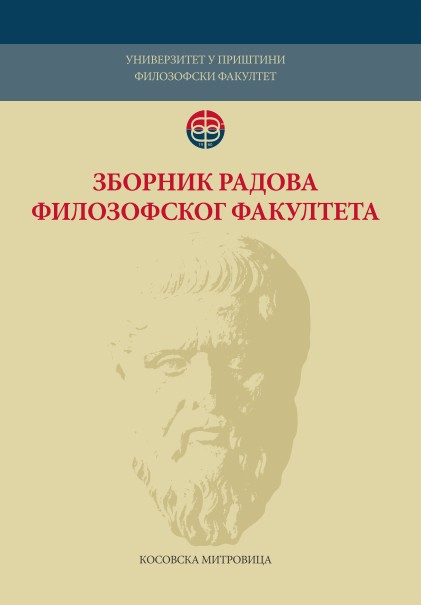Развој школства и педагогије у Србији у првој половини 20. века – најзначајнији научни и друштвени утицаји
Development of the school system and pedagogics in Serbia during the first half of 20th century: Major scientific and societal influences
Author(s): Danica Dobrosavljević, Mirjana Simić, Jelena PetrovićSubject(s): Social Sciences, Education, History of Education
Published by: Филозофски факултет, Универзитет у Приштини
Keywords: development of Serbian school system; Herbartian pedagogy; New Education Movement; The Work School
Summary/Abstract: The main objective of this paper was to analyse the development of the school system and the science of education in the first half of the 20th century. Different societal circumstances were taken into consideration, including political, economic, and cultural, as well as pedagogical trends that dominated the educational scene at that time. In order to follow those influences more easily, we analysed the development of schools and pedagogical science through two periods that could easily be distinguished. The first period begins at the end of the 19th century and last until the beginning of the World War I. During this period we can witness the rapid development of the school system. The other period is embedded between two world wars and is marked by the advancement of theory and development of different pedagogical approaches. The first of the periods mentioned was marked by economic development, openness for European influences, and development of benevolent circumstances for cultural, scientific, and pedagogical growth. It brought order in the educational legislative and establishment of the institutions that could further promote development of the school and educational system. Some of those institutions were Teachers' Association, Pedagogy department at the Faculty of Philosophy in Belgrade, and Belgrade University. The development of elementary and secondary educational systems also went through rapid changes. Theoretical support for those processes came from the German speaking area and meant gradual introduction of Pestalozzian and Herbartian ideas in Serbian pedagogy. Curricula were mainly based on Pestalozzian ideas (Ilić, 2005, p. 124) while Herbartian method of formal steps dominated in the articulation of teaching. Credits for bringing herbartianism in Serbia, and its implementation in teaching academies' laboratories and classrooms across Serbia go to Professor Vojislav Bakić. One of his contemporaries, Sreten Adžić, also a lecturer at the teaching academy, on the other hand, opened the way for using manual labour in schools and the pedagogy of The Work School. In this brief period, Serbian schools and pedagogy went through Pestalozzian ideas, herbartianism, and the Work School, from establishing its bases to its reformation. German influences were strong due to geographical closeness. Furthermore, their school systems were elaborate and compatible with the centralized Serbian system. The period between two wars was marked by stagnation and very poor organization of the educational and school system. It suffered all the drawbacks of the post-war society, such as increased poverty and damage from the further political conflicts. Unlike the previous period when school was expected to play an important role in raising the educational and cultural standards of population, school was expected to serve the political idea of Yugoslavinisation in this period. Still, many young Serbian pedagogues fought for the development of the science of education and managed to introduce valuable theoretical and practical achievements to the pedagogical scene in Serbia. Milan Šević and Miloš Milošević introduced Serbian pedagogues to Cultural and Social Pedagogy. Vićentije Rakić offered very authentic views of the New Education Movement, while Vojislav Maladenović brought elements of Pragmatism to Serbian pedagogy. This rich and prolific activity was interrupted by the World War II and the resulting social and political circumstances promoted the new direction of Serbian pedagogy.
Journal: Зборник радова Филозофског факултета у Приштини
- Issue Year: 49/2019
- Issue No: 2
- Page Range: 263-281
- Page Count: 19
- Language: Serbian

